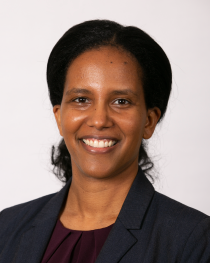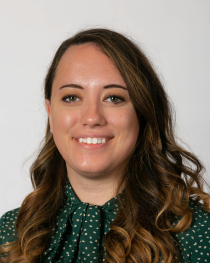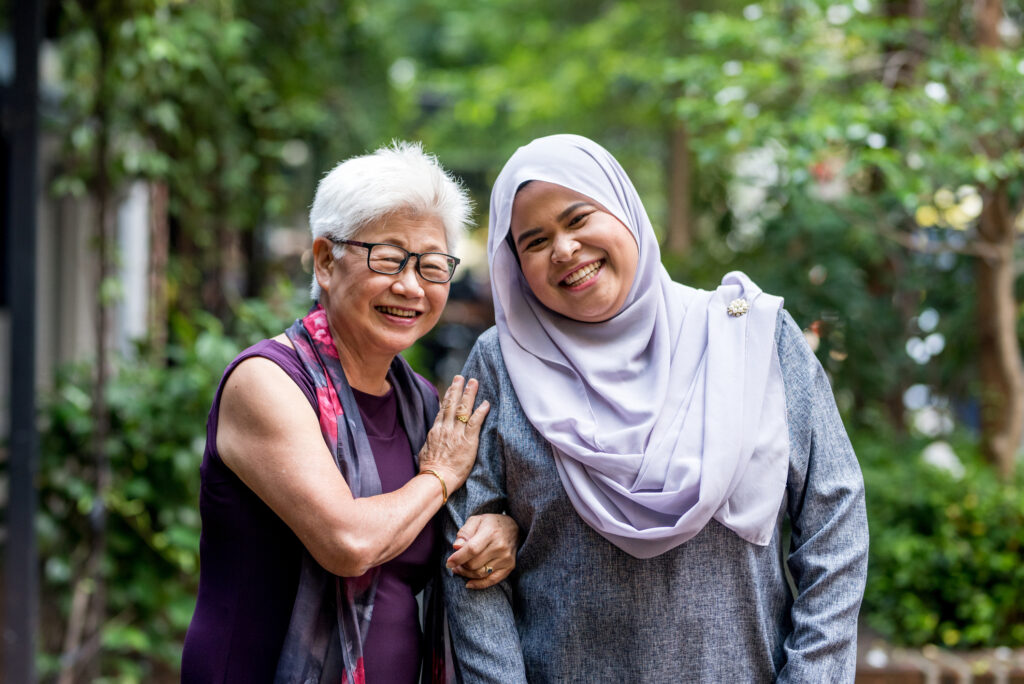Supporting Family Caregivers: An Urgent Public Health Issue
On September 21, 2022, the RAISE Family Caregiving Advisory Council and the Advisory Council to Support Grandparents Raising Grandchildren (SGRG) convened to release the 2022 National Strategy to Support Family Caregivers (“National Strategy”).
Allison Barkoff, Acting Administrator of the U.S. Administration for Community Living (ACL), gave the opening address of the council meeting and discussed the momentous occasion of the National Strategy’s release, emphasizing how family caregivers are a critical pillar in ACL’s work. Xavier Becerra, Secretary of Health and Human Services, remarked how supporting family caregivers is an urgent public health issue and how this National Strategy provides a roadmap for implementation.
A Roadmap for Action
The first panel of the meeting presented the National Strategy:
- Strategy Overview: Casey Shillam PhD, RN, RAISE co-chair and Dean/Professor of the School of Nursing & Health Innovations at University of Portland, provided national context to the experiences of family caregivers and outlined the National Strategy’s five components: the Narrative, Federal Actions, Actions for States, Communities, and Others, and First Principles: Cross-Cutting Considerations for Family Caregiver Support.
- The Strategy as a Vehicle for Action & Advocacy: Jaia Lent MSW, SGRG co-chair and Deputy Executive Director of Generations United, outlined the key themes of the Strategy, such as better alignment of cross-sector responses, advancing equity, and ensuring family-centered and trauma-informed approaches. All levels of government and a wide range of organizations can play a critical role in its support and implementation, including states, tribes, communities, community-based providers of long-term services and supports, child welfare agencies, health care systems, business leaders and employers, faith-based organizations, philanthropic organizations, and academic institutions. Lent emphasized how this National Strategy is a vision and roadmap for meaningful change, and not a timeline or a “how-to” document.
- Focus on Grandfamily & Kinship Family Caregivers: Dr. Ethelyn McQueen-Gibson, SGRG Co-Chair and Associate Professor & Director, Gerontology Center for Excellence, School of Nursing at Hampton University, provided national context to kin and grandparent caregivers, including their unique needs and considerations. She emphasized the significant stigma surrounding kin and grandparent caregivers and a greater need for this cohort to be embedded in children’s education and health systems. Dr. McQueen-Gibson then connected how the National Strategy addresses these issues.
- “First Principles” Cross Cutting Considerations: Nancy Murray, RAISE co-chair and Senior Vice President of Achieva, discussed the cross-cutting considerations for family caregiver supports. These principles include placing the family and person at the center of all interactions, addressing trauma and its impact on families, advancing equity for families in underserved communities, and elevating the direct care workforce as partners in family caregiving.
- A Whole of Society Approach: Actions for States, Communities, and Others: Alan Stevens PhD, RAISE co-chair and Vernon D. Holleman-Lewis M. Rampy Centennial Chair in Gerontology at Baylor Scott & White Health (BSWH), delineated the “all-hands-on-deck” approach that states, communities, and others can take to support family caregivers. Actions include: increasing awareness and outreach, advancing partnerships and engagement, strengthening services and supports, ensuring financial and workplace security, and expanding data, research, and evidence-based practices. Resources for states, communities, and others to implement the National Strategy can be found at The RAISE Act Family Caregiver Resource and Dissemination Center.
- The Federal Government’s Commitment to Family & Kinship Caregivers: Alison Barkoff concluded the first panel by highlighting the 350+ actions that 15 federal agencies committed to supporting family caregivers within their existing authorities and resources.
Resources & What’s Next
The second panel of the session gave the council members the opportunity to reflect on their work over the past three years of developing the National Strategy, including the intended outcome, stand-out features of the strategy, and what they hoped the legacy of this work would be. Council members from both councils shared their reflections and experiences, personal stories of caregiving, and their hopes for the work going forward building upon the initial strategy.
Next, speakers from The John A. Hartford Foundation (JAHF), the National Academy for State Health Policy (NASHP), and Generations United summarized the research, technical support, and next steps to support the National Strategy from their organizations’ perspectives.
Rani Snyder, Vice President, Program at The John A. Hartford Foundation, spoke about how the RAISE Act Caregiver Resource and Dissemination Center was developed, and how the Center is a unique collaboration between a federal agency (ACL), a philanthropic organization (JAHF), and a nonpartisan nonprofit policy research organization (NASHP) to support the work of the RAISE and SGRG councils. Rani Snyder also spoke about collaboration with the funder membership organization Grantmakers in Aging to develop the Family Caregiving Funders Community, a network of over 40 philanthropic funders ranging in size, focus, and region with a shared commitment to supporting caregivers. Grantmakers in Aging will also track opportunities for private and public capital to support National Strategy recommendations, and an action guide for funders is forthcoming. Snyder noted that all have a role to play in improving family caregiver supports, highlighting that the National Strategy includes action steps for a wide range of organizations, and concluded with a call for organizations to take action on the steps in the National Strategy.
Wendy Fox-Grage, Senior Policy Fellow at the National Academy for State Health Policy, spoke about NASHP’s work to support Council activities and the National Strategy. Since 2019, NASHP has supported the RAISE Council through technical assistance and research focused on state opportunities to support caregivers, including:
- Writing Council summary meeting reports, hosted along with video recordings and slides on NASHP’s website
- Writing a report on Medicaid supports for family caregivers, which was included in the September 2021 RAISE Family Caregivers Act Initial Report to Congress, and supporting the Initial Report to Congress’ development
- Regularly convening subject matter experts in a RAISE Faculty group to support the Councils work and technical assistance questions
- Creating the RAISE Act State Policy Roadmap — a comprehensive document of state strategies and promising practices to support the strategy’s recommendations
- Subcontracting with the University of Massachusetts Boston and Community Catalyst to conduct an analysis of ACL’s request for information and publish findings
- Supporting subcontractor focus groups and listening sessions (including over 150 organizations in 6 listening sessions, 13 focus group sessions, 17 key informant interviews, and 22 further listening sessions) including two reports on findings
- Subcontracting with the National Alliance for Caregiving to develop a caregiver vignette series, featuring videos of more than 20 diverse family caregivers stories
- Developing and convening a year-long state policy institute learning lab with six selected states to facilitate state-level uptake of the National Strategy goals and recommendations; this institute culminated in a family caregiving preconference featuring states’ work and insights at NASHP’s 2022 annual conference and an upcoming brief on the states’ work
- Outreach and dissemination through presenting at national meetings
Fox-Grage also described other NASHP resources including NASHPs three newly published interactive respite care maps. NASHP’s webinar on the National Strategy and an upcoming November NASHP Twitter chat on family caregiving were also highlighted. She concluded by sharing a public ask to help disseminate the National Strategy; provide feedback during the public comment period on the strategy; and analyze the National Strategy for action steps organizations could take.
Ana Beltran from Generations United spoke about her organization’s work and support of kinship and grandparent caregivers. She shared information on work completed during Generations United’s first year of their ACL-funded Grandfamilies & Kinship Support Network: A National Technical Assistance Center (Network). In the past year, the Network has provided government agencies and organizations serving kinship families and grandfamilies technical assistance in the form of regional convenings, a tribal convening, and virtual calls with all 50 states, DC, Puerto Rico, and the U.S. Virgin Islands. The goal of these convenings was to help support peer learning and the development of relationships across agencies and service providers. Within the technical assistance center, key family concerns noted were wide-ranging and included legal issues, health and nutrition, housing, and finances. Beltran also noted that the Network provides individual assistance for government agencies and nonprofit organizations in states, tribes, and territories through targeted support, and learning collaboratives, and highlighted the opportunity to submit an application for “Exemplary Policies, Practices and Programs” that serve kinship families or grandfamilies.
Jessica Schubel, Director of Affordable Care Act and Healthcare for the White House Domestic Policy Council, gave remarks on the current administrations support of home- and-community-based services, and highlighted that the National Strategy was a step in advancing the administration’s goals.
Councils Seek Public Comments on the National Strategy
The meeting concluded with an acknowledgement of and thanks to the outgoing council members from Alison Barkoff; and sharing next steps for promotion of the National Strategy, including a call to action for attendees to promote the strategy. ACL provided a social media toolkit for all individuals to use to promote the National Strategy. In addition to online and social media, organizations including ACL, The John A. Hartford Foundation, and NASHP will continue promoting the National Strategy in print, online, and other media.
ACL plans to announce the seating of two new RAISE and SGRG Advisory Councils at public meetings later in 2022.
Beginning October 1, 2022, the 2022 National Strategy is open for public comment for 60 days, until November 30th, 2022. Submit a public comment.





